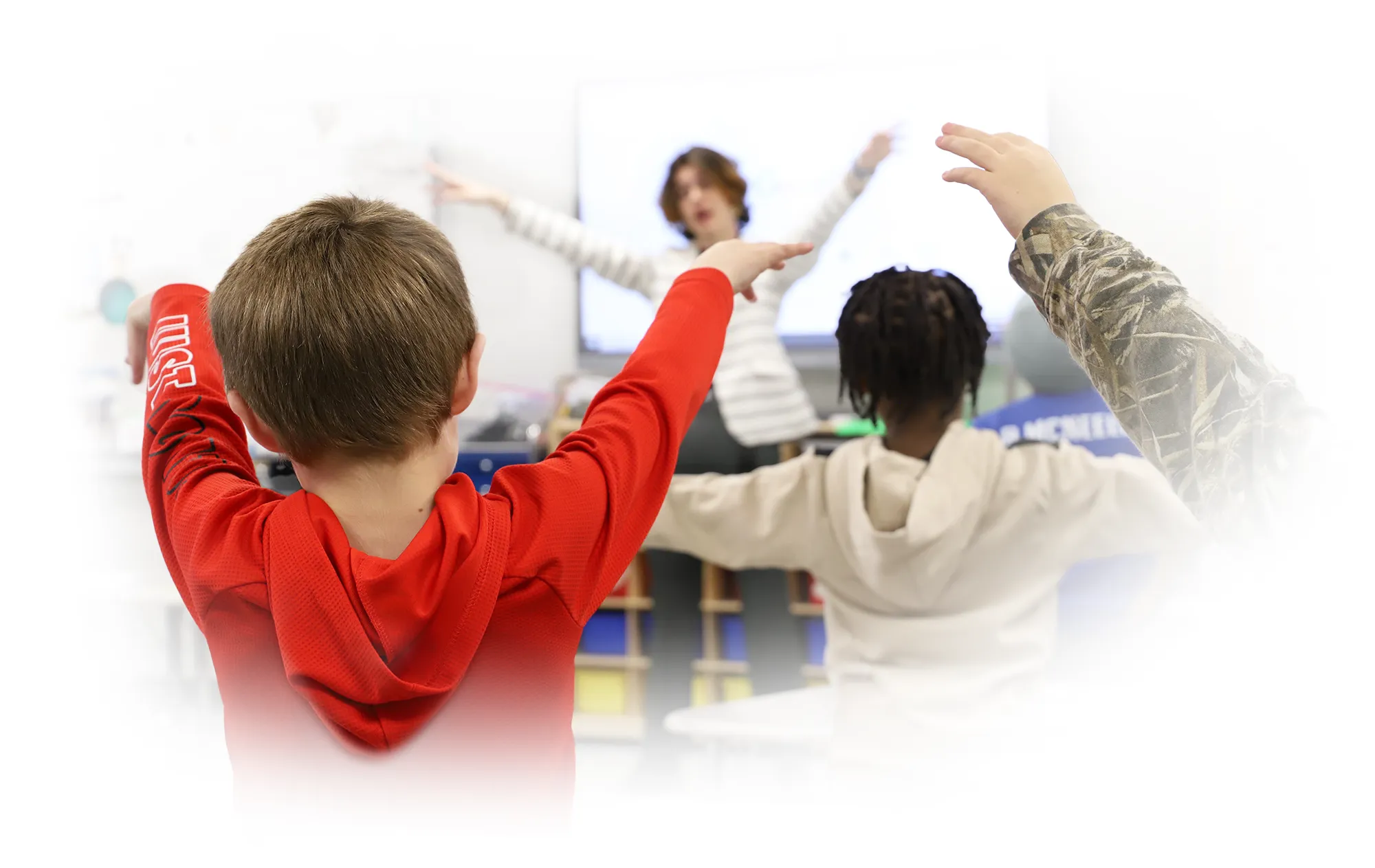Striking the Right Chord

Back in 2017, College of Education faculty members Jane Kuehne and Kathy King had a revelation while teaching first-year music education majors.
So, that was exactly what they did. Kuehne and King knew the elementary school in Loachapoka, a rural community just a few minutes down the road from the Auburn University campus, didn’t have a music teacher. They began assigning groups of first-year students enrolled in their spring lab class to teach children in kindergarten through sixth grade once a week.
That program, which continued via Zoom through the COVID-19 pandemic, is still ongoing today, with students teaching in pairs both in Loachapoka and at Reeltown Elementary, another rural school without a music teacher. Kuehne can recall the day she knew the program was successful.
“I remember in that second year that I walked in and saw the school had added a ‘No visitors allowed’ sign,” she said. “I immediately thought, ‘Well, shoot, we’re not going to be able to do this anymore.’ And the principal said, ‘Oh, no, no, no, you’re not visitors. You’re part of the school.’”
As time went on, Kuehne noticed that giving students ownership of their education meant they saw the value of their degrees early in their college careers. There are now fewer students transferring out of the major, and music education has grown from a small program to one that is overflowing. By the time they are seniors with internships, music education majors have years of experience in the classroom, the stamina needed to make it through a school day and a toolbox of lesson plans.
Senior Sam Gantt has found his experiences teaching and observing fellow students in the classroom have helped him plan for his career.
“It has helped me prepare a lot,” he said. “I once taught three 45-minute classes, and I didn’t realize until then how much work went into teaching kindergarten and first-grade classes. I know I don’t want to primarily teach elementary school when I graduate, but I feel like if you can teach elementary school, you can teach middle school and high school, and that’s what I hope to do.”
“I was blown away,” Bell said. “My intern hardly needed anything. He knew exactly what he was doing and was fully teaching the fourth grade on his own, and that was just the expectation of the program. So, as an outsider coming in, I was really impressed by that.”
Benefits all around
Not only is the program making a difference for Auburn students, it’s also making a difference in the lives of students and teachers in the elementary schools. The Auburn students never take a Friday off, and the children know they can depend on them to be there teaching one of their favorite classes.
“They get so excited seeing our students come in and knowing they have music class that day,” Kuehne said. “I remember hearing a Loachapoka student say one day, ‘It’s Friday, it’s music day!’”
When the music education majors teach the older grades, they can tell from the students’ levels of knowledge that those who came before them have taught a solid foundation in music theory. And while the children are learning about rhythm, dynamics and musical instruments, their teachers are benefiting as well.
When a group of first-year students brought in mandarin oranges to illustrate the values of whole notes, half notes and quarter notes by peeling, separating and then enjoying them as a snack, the principal of the school said she had never seen anything like it. One teacher couldn’t believe the first-year Auburn students were not seniors getting ready to graduate. Another told Kuehne she was actually learning from the student teacher leading her class.
“She said it was the best teaching she had ever seen and that she was learning so much,” Kuehne said. “That was a sophomore who was teaching her students, and she was learning from her.”
